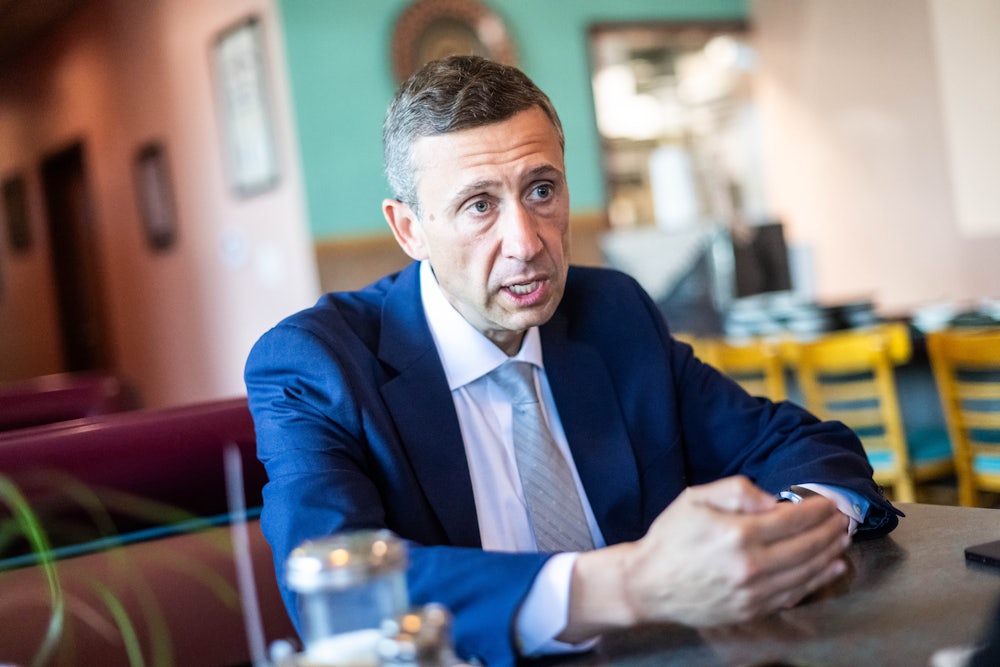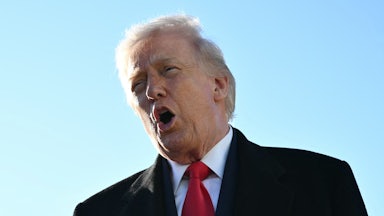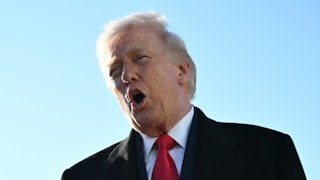In Tuesday’s special elections, Democratic voters across the country will be faced with a choice that will likely shape the trajectory of the entire party. And while each candidate will have that “(D)” by their name, their actual policies and beliefs will vary wildly. Just take a look at the sharp critique Virginia Democratic gubernatorial candidate Abigail Spanberger lobbed at New York City Democratic mayoral nominee Zohran Mamdani.
“Maybe he should be a Democrat,” Spanberger quipped last week when asked about Mamdani’s claim that his campaign had “won the battle over the soul of the Democratic Party” in defeating former Governor Andrew Cuomo in the primary.
“Why is it that everybody keeps thinking somebody running in a city, admittedly an enormous city, that that is the deciding race?” Spanberger asked, going on to question Mamdani’s honesty. “People do want us to be aspirational and dream big. They also don’t want us to lie to them.… When you have a party that makes promise after promise, and then say, ‘Oh, we passed it in the House, it’s not our fault’—vulnerable people believed you. Maybe he is going to get Albany on board with totally refinancing public transportation. But there’s a lot of people who believe him.”
Spanberger’s comments illustrate the friction between the progressive and more centrist wings of the Democratic Party, a conflict that has only ballooned in significance in the Trump era. But party leadership has its eyes on the bigger picture.
In a Monday interview just minutes away from Spanberger’s Norfolk, Virginia, campaign headquarters, Democratic National Committee Chair Ken Martin assured me that his party did indeed have room for both Spanberger, the centrist former CIA agent, and Mamdani, the Ugandan-born Muslim democratic socialist—and that their ideological disagreements are actually good and healthy.
“No one should confuse unity and unanimity within the party. We are a big-tent party. We’ve got many different ways of being a Democrat,” Martin said, when I asked him about a lack of party congruency on more left-leaning, economic populist policies like universal health care and childcare. “We’ve got conservative Democrats, we’ve got centrists, we’ve got progressives like me, and we’ve got leftists in this party.
“All are welcome. We share the same goals, which is making people’s lives more affordable and actually giving people an opportunity to get ahead. What that looks like is different in different parts of the country.… There’s different issues that are facing New Yorkers than there are in Richmond, Virginia.… And how our politicians decide to tackle those issues is different all over the country, right?” Martin continued. “But there is a through line right now between, let’s say, Abigail Spanberger and Mikie Sherrill and Zohran Mamdani. Despite the fact that all three come from very unique and different areas and also represent different wings of the party, they all are focused on the same thing, which is how to lower costs and make people’s lives more affordable so they actually can get ahead.”
A self-described “Wellstone progressive,” Martin left his longtime position as chair of the Minnesota Democratic Farmer Labor Party in 2025 to chair a party on life support. From the jump, he stressed the need for a party-wide return to its working-class roots, writing in February in his first party memo as chair that “the canary in the coal mine” of Vice President Kamala Harris and the party’s November catastrophe was that “for the first time in modern history, Americans now see the Republicans as the party of the working class and Democrats as the party of the elites.”
Seven months later, and Martin was still hammering the importance of labor—and harder than I’d heard Democratic leadership on Capitol Hill do in some time.
“We need the Democratic Party to fix this corrupt and rigged system that is only benefiting those at the top. The rich, the powerful, the wealthy and well connected. It’s bullshit,” Martin said, while we sat in a Norfolk Starbucks, his easygoing Minnesota accent growing stern. “It’s got to change. No one is benefiting from this administration except those at the top, right? And that’s how they like it.”
That’s part of why Martin immediately congratulated Mamdani on his primary win, even as Senate Minority Leader Chuck Schumer and House Minority Leader Hakeem Jeffries balked. (Jeffries endorsed Mamdani just two weeks ago, while Schumer continues to avoid questions about him entirely.)
“The reason I [endorsed Mamdani] is not because I agree with him on everything, just the opposite. But because I really believe my job is to honor the will of the primary voters who make those decisions, and once they elect or send us a nominee in a primary, our job is to fight like hell for whoever they elect.”
“What I care about is winning in November,” Martin said, later in our conversation. “The primary is not important to me. Whoever, whichever candidates come out are the candidates that we’re going to work for, right? They have different prerogatives than I do, right?”
But while it’s certainly refreshing to hear the DNC chair call the status quo of American life “rigged,” “bullshit,” and “corrupt,” that rhetoric isn’t adequately emphasized or even acted upon by the rest of the party’s leaders. Most Americans don’t believe that the Democratic Party is materially committed to that message at all. That’s a trend Martin himself acknowledged in that aforementioned party memo, even as he doesn’t see the need for a national leftward shift in the party.
What Martin does think the party needs is a new messaging strategy.
“Forty-five percent of Americans say they avoid news and politics at all costs. So where did [the Democratic Party] go when we came into the digital space? News and politics. Where did the Republicans go? Sports, culture, entertainment,” Martin said. “Who did we use as our spokespeople? Politicians, the most mistrusted people in America. Who did they use? Nonpoliticians. We weren’t in those spaces.”
It’s more than understandable for Martin to be more concerned with winning elections than with the DNC purity-testing candidates, especially after they’ve won a primary. And it’s obviously very hard for a party to change the status quo when it has virtually no federal power. But as Spanberger displayed with her comments about Mamdani last week, there is a real tension within this tent, no matter how big Martin says it is. How can those who wish to maintain or return to a Third Way centrist status quo coexist with those who wish to upend that status quo entirely?
The left that Martin recognizes as a key part of the Democratic coalition was essentially rebuked in 2016 and 2020 as the party resisted the democratic socialism of Bernie Sanders and then quickly coalesced around Joe Biden. Democratic leadership is repeating history right now with Mamdani, even as he sparks an energy and enthusiasm that the party has struggled so mightily to capture since President Barack Obama (who himself is a big fan of Mamdani).
And yet Martin’s prerogative is to win elections, even if it means embracing the internal strife that is pulling his party and its various coalitions in different directions. But whether that will actually produce a vision and platform Americans believe in remains to be seen—with its first real test on Tuesday.
“My job is to build power and actually win so we can get shit done for people,” the chairman said. “There are values that connect all of us. And in a coalition, you work them out. You have the same goals. We have the same goals. How we get there, there’s lots of different ideas and opinions. And within a coalition party, you work those differences and opinions out, you compromise, and you find the policy that works for everyone, and then you go and get it done right.”










